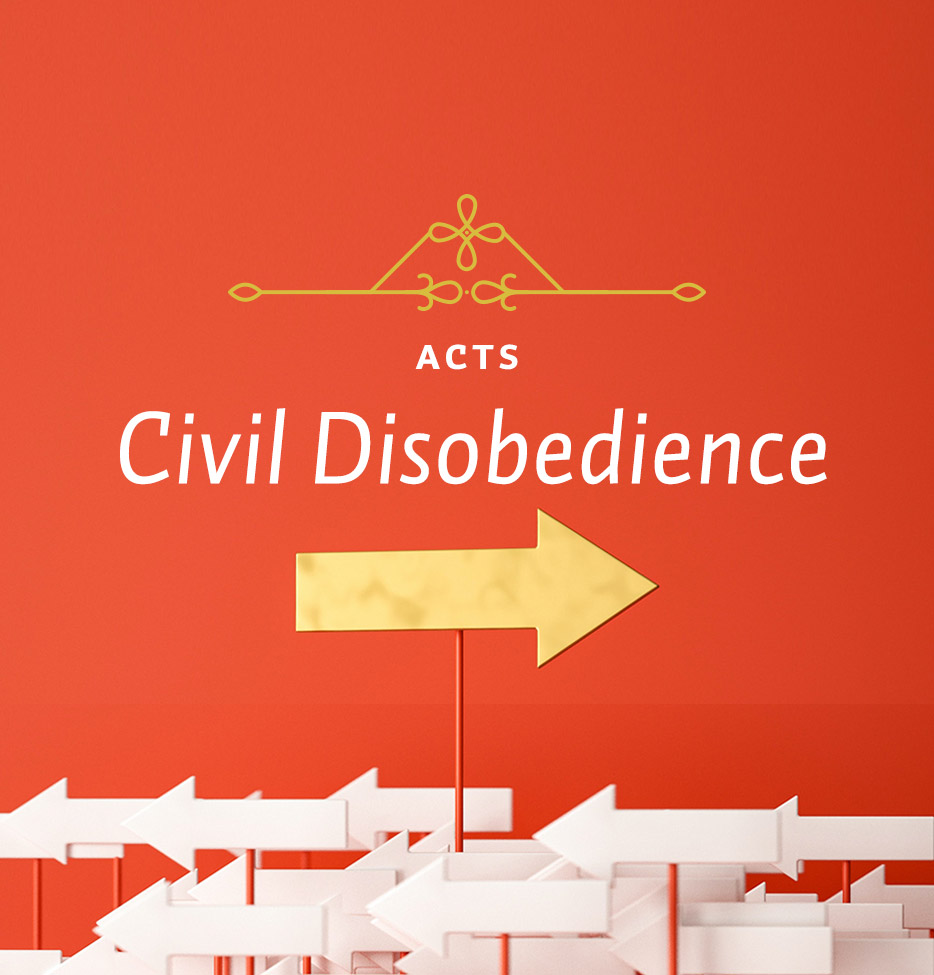When we speak about the relationship between “God and Caesar,” to use Jesus’ words, there really are only four possible options: The first is God alone with the authority of Caesar denied; the second is Caesar alone with the authority of God denied.
The third option is the authority of both God and Caesar, but with Caesar in the dominant position. This is the option of cowards. This is the position Pilate reflected in the trial of Jesus Christ. Pilate was no Jew; he did not know the Jewish God. He was certainly no Christian. Yet he may have had a pagan superstitious sense that when he saw Christ and recognized that he was dealing with an extraordinary man, he was, well, perhaps dealing with one of the half-divine, half-human gods of Greeks and Roman mythology. Pilate knew that it was bad to get one of these gods angry at you. What if he condemned Jesus and Jesus turned out to be one of those gods? What if he was just “a little bit” God? What if Jesus “zapped” him for it? He didn’t want to take a chance. So he did everything he could to try to get Jesus excused. Pilate’s problem was that he was far more afraid of Caesar than he was of any spiritual reality. So he did the wrong thing in the end.
The first option, “God alone,” is monasticism. The second option, “Caesar alone,” is secularism. The third option, “God and Caesar but with Caesar in the dominant position,” is cowardice. Here is the fourth option, the biblical position: God and Caesar but with God in the dominant position.
This means that the state has a legitimate authority, as Paul writes in Romans 13. But this does not mean that the state is autonomous any more than you and I are autonomous. Human beings are given certain spheres of authority. Church elders have authority; parents have authority over their minor children; employers have certain authorities over their employees; police have authority. There are many kinds of authority. But none is independent of God. All authority that has been given to someone or some group of people is from God. Hence, those who hold authority are responsible to God who is the ultimate authority. That is why we have to obey God whenever the two come in conflict.1
That is what Peter and John did. And because they obeyed God they were used of God in launching a movement that has extended throughout the entire world, has transformed it and is still with us today, centuries after the Jewish Sanhedrin has passed away.
That is what you and I are called to do too. We are part of something eternal. We may look at the United States and say, as President Reagan once said, “I hope it lasts for two hundred more years.” But whether it is two hundred years, or one thousand years, eventually even this great land of ours will be gone. Only the kingdom of God will never pass away. It is eternal. The important question is “What kingdom do you belong to?” Where is your ultimate allegiance? Do we have allegiance to the state? Yes, we are to have a certain measure of that. We’re called to give honor where honor is due, taxes where taxes are due, all of that. But most of all, we are called to be citizens of the kingdom of the Lord Jesus Christ and live for Him.
How are we going to do that? We need three things. First, we need to know that God is sovereign in life. If we do not know that, we will think that it is the state that is sovereign and tremble before Caesar, as Pilate did. Jesus did not tremble because He knew that, regardless of what Pilate did, the will of God would prevail. Peter and John did not tremble before the Sanhedrin because they knew, regardless of what the Sanhedrin did, in the end the will of God would be done. We also need to know that God is sovereign.
Second, we need to know the Bible, because these things seldom confront us in stark black-and-white terms. It would be nice if they did. Then we would be sure what to do. But crises seldom come that way. They creep up upon us by degrees, and eventually we are confronted with an issue that does not seem quite black and white. It seems gray. We recognize that there are various points of view. We listen to them, and eventually we are drawn away. The Bible is the only thing that clarifies the hard issues when the world is doing everything it can to make them relative.
Third, we have to be willing, if necessary, to sacrifice everything in order to stand for what is right. It is possible to know that God is sovereign and know what is right and yet, when confronted by the cost of obedience, say to yourself, “I just can’t do the right thing. I can’t pay that price.” Peter and John were willing to pay the price, and they did. So did the other apostles and disciples. Are you? It is only those who are willing to pay the price who make a true and lasting difference in the end.
1For a fuller treatment of these four options see James Montgomery Boice, Foundations of the Christian Faith (Downers Grove, IL: InterVarsity, 1986), 688-699.






